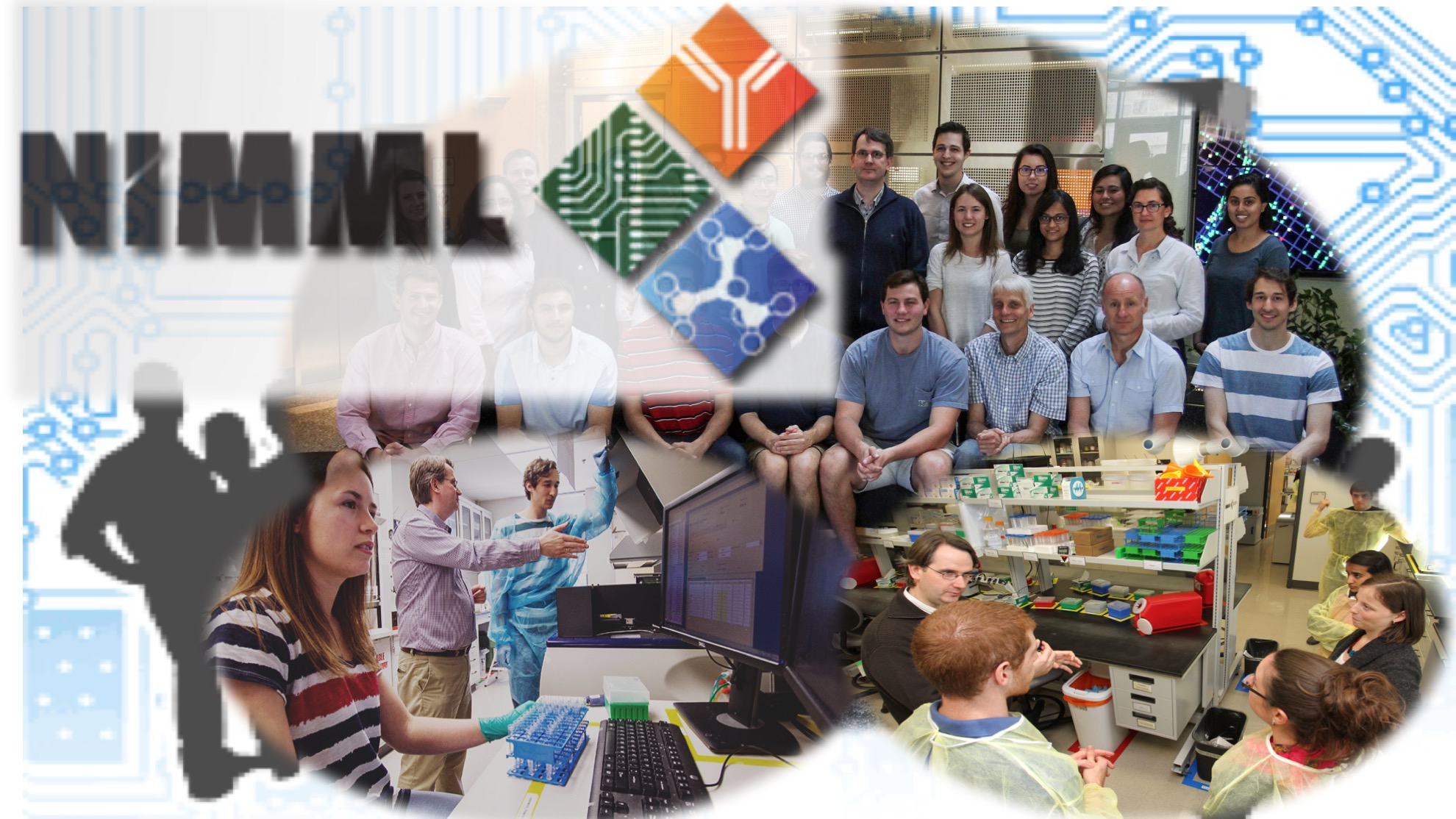Transdisciplinary Research Fuels NIMML Innovation

Transcending the traditional boundaries of old disciplinary silos poses major challenges for most organizations but also offer fertile ground for fueling innovation and entrepreneurship. The Nutritional Immunology and Molecular Medicine Laboratory (NIMML) has pioneered using transdiciplinary approaches to tackle unsolved challenges in complex human diseases with unmet needs. The NIMML works at the intersection of nutrition, immunology and bioinformatics by combining advanced computational technologies with preclinical and clinical experimentation to catalyze translation of scientific discoveries into commercial applications that address unmet clinical or consumer needs.
One example in which NIMML has transcended the boundaries of disciplinary silos is in the study of biocomplexity of the gastrointestinal (GI) tract. The gut is a prime example of biocomplexity. It has a surface area that measures about 300 square meters, about the size of two tennis courts. The gut hosts 40 trillion bacteria that contribute to nutrition and optimal immune function. It has 30 trillion cells that can be pro- or anti-inflammatory in a context-dependent way (depending on the microenvironment) and 75% of the immune system resides in the gut. The balance between health and disease is exquisitely controlled by complex interactions among the diet, the gut microbiome, our body’s metabolism and the immune system. When interactions become out of sync, disease follows.
When engineers build airplanes and rockets they create computational models before the parts are assembled. The system is no longer trial and error, but an efficient, well-controlled and precise process that uses the power of modeling and simulation. NIMML has applied transformative modeling technologies driven by high performance computing that improve efficiency, decrease cost and reduce the time required to find treatments for debilitating and widespread diseases. We have built computational and mathematical models of unprecedented scalability (trillions of agents) and high resolution (from molecules to cells, to tissues to systems) of the GI tract. These modeling approaches combine computational and experimental methods to comprehend complex systems such as the immune system and represent a prime example of transdisciplinary research.
“Transdisciplinary research and team science along with agile, lean and efficient management models are key signature elements of NIMML’s programs,” said Dr. Bassaganya-Riera, the Director of the NIMML. “The transdisciplinary R&D efforts pioneered by NIMML are fueling innovation and entrepreneurship in precision medicine and health for solving important problems in autoimmune diseases.”
Transdisciplinary team science-based research that avoids unnecessary silos and transcends traditional disciplines is a core foundation at NIMML. It is aimed to integrate the expertise from different disciplines in a new and unconventional way that transcends each of them, including nutrition, immunology, biochemistry, drug development, biomedical engineering, computational biology, computer science, bioinformatics, mathematics and statistics. The overall goal is to integrate these disciplines in the context of solving complex problems in human diseases to fuel and accelerate innovation in infectious and autoimmune diseases.
This transdisciplinary team-science approach at NIMML involves the researchers being exposed to various skills ranging from laboratory bench skills, experimental techniques, clinical and translational research, computer programming, mathematical modeling and simulation, data analysis along with hypothesis formation, and critical thinking.
A few examples of team-based science at NIMML are sponsored by various grants and contracts such as -i) $1.7 million grant awarded by the Defense Threat Reduction Agency, or DTRA, ii) $40 million IDIQ contract from the National Institutes of Health/National Institute of Allergy and Infectious Diseases (NIH/NIAID), and the iii) $12 million project, the Center for Modeling Immunity to Enteric Pathogens (MIEP) under the NIH/NIAID.
About NIMML
The NIMML Institute is a 501 (c) (3) non-profit public charity foundation focused on a transdisciplinary, team-science approach to precision medicine at the interface of immunology, inflammation, and metabolism. The NIMML Institute team has led numerous large-scale transdisciplinary projects and is dedicated to solving important societal problems by combining the expertise of immunologists, computational biologists, toxicologists, modelers, translational researchers, and molecular biologists. The Institute is headquartered in Blacksburg, VA. For more information, please visit www.nimml.org or contact pio@nimml.org.
